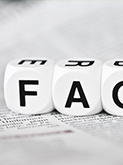Value-Added Tax (VAT)
Is an indirect tax based on consumption of goods and services in the economy. VAT is a significant revenue raiser for Government which requires businesses (referred to as vendors that act as agents of the Government) to register and to charge and collect VAT on the supply of goods or services. The mechanism of charging, collecting and paying the VAT to Government is based on self-assessment, which allows the business to determine its liability or refund of tax. It adopts a credit input method which allows businesses (vendors) to deduct the VAT incurred on business expenses (input tax) from the VAT collected on the supplies made by the business (output tax). In other words, the burden of the VAT is on the final consumer while maintaining neutrality in the business chain
What is the current VAT rate?
VAT is currently levied at the standard rate of 14% on most supplies and importations, but there is a limited range of goods and services which are either exempt, or which are subject to tax at the zero rate. Zero rated items mean that you pay 0% VAT on them. These are brown bread, milk, eggs, rice, petrol, sale of going concern (such as a business) and direct exports. However, if the above mentioned products are sold as a meal, they are supplied at standard rates. For example, VAT is charged on a glass of milk at a restaurant
A business can register for VAT, either under the compulsory registration category or the voluntary registration category.
· Compulsory Registration – you will be liable to register for VAT if the income earned from selling goods or fees earned from services supplied is more than R1 million in any consecutive period of 12 months, or will exceed that amount in terms of a contractual obligation in writing. Non-resident suppliers of certain electronic services are also liable to register for VAT if the fees earned from electronic services that are supplied exceeds
R50 000
· Voluntary Registration – you can apply for voluntary registration even though your income earned from selling goods or fees earned from services supplied is less that R1 million. There is, however, a requirement that the income earned from selling goods or fees earned from services supplied must have already exceeded the minimum threshold of R50 000 in the past 12 month period
Remember, if you choose to register for VAT, you will have to carry out all the duties of a VAT vendor. For example, you will have to charge VAT, submit VAT returns, make VAT payments to SARS on time and keep proper records of all sales and expenses incurred by business
May I register for VAT if my business only makes exempt supplies?
If you only make exempt supplies you cannot register for VAT. Accordingly, you cannot charge VAT on your supplies and you cannot deduct any VAT incurred on expenses
How do I register as a VAT vendor?
To register as a vendor, BRW will assist you by applying and queuing on your behalf. Kindly request from our office to send you the required forms
Can my application to register for VAT be rejected?
SARS only registers legitimate businesses for VAT. A voluntary application for registration may be declined if a sole proprietor or taxpayer is fount not to
· Have a fixed place of abode or business
· Keep proper accounting records
· Have opened a banking account
· Be able to provide proof of turnover (projections are not accepted)



